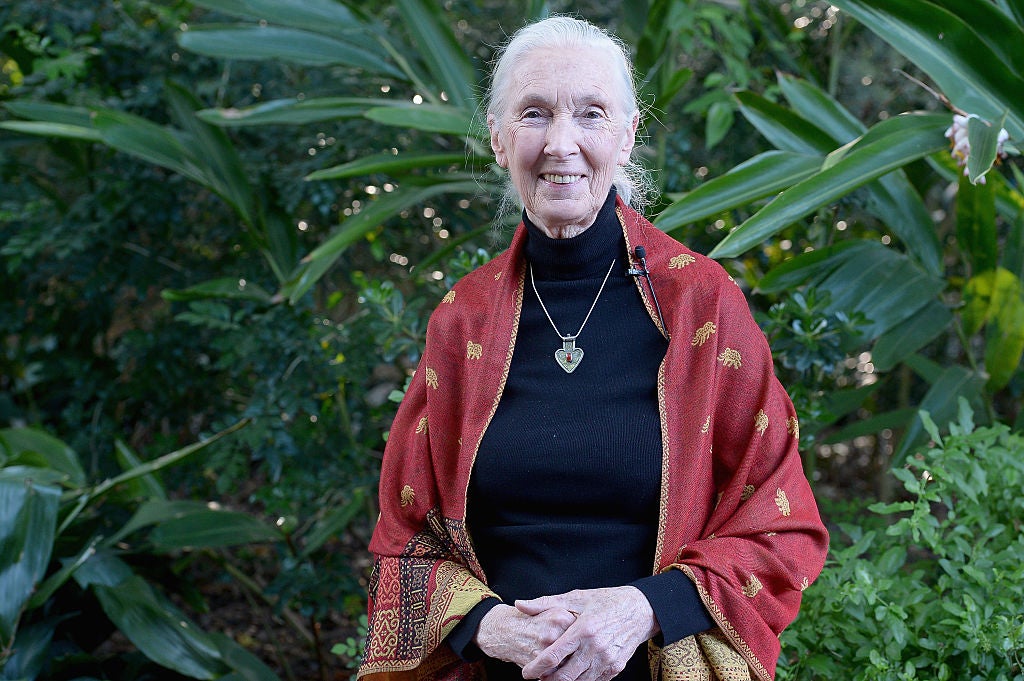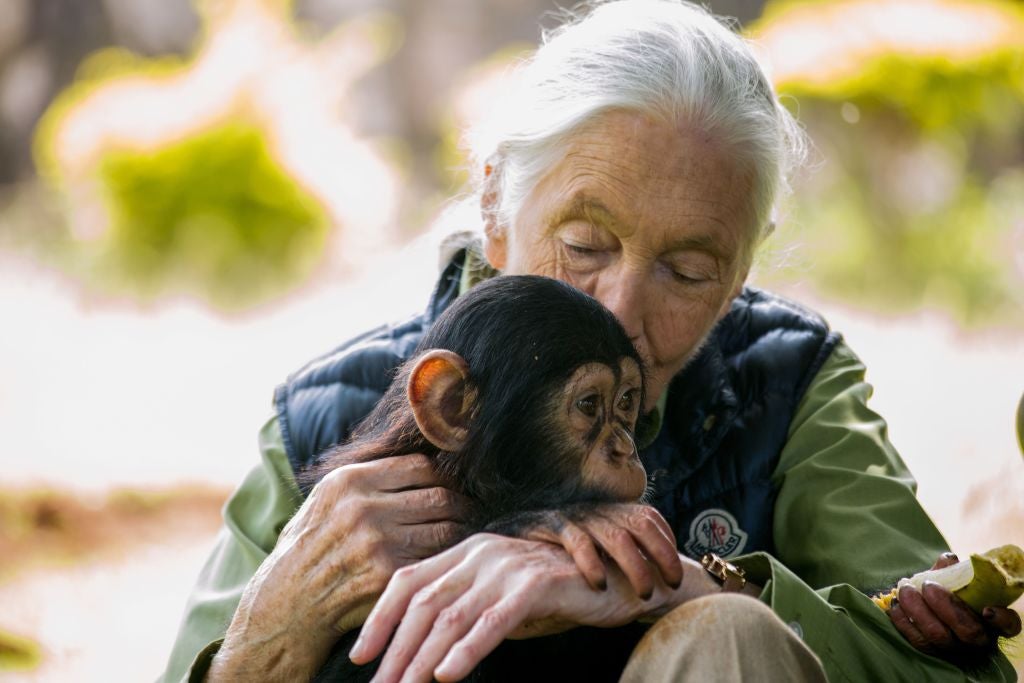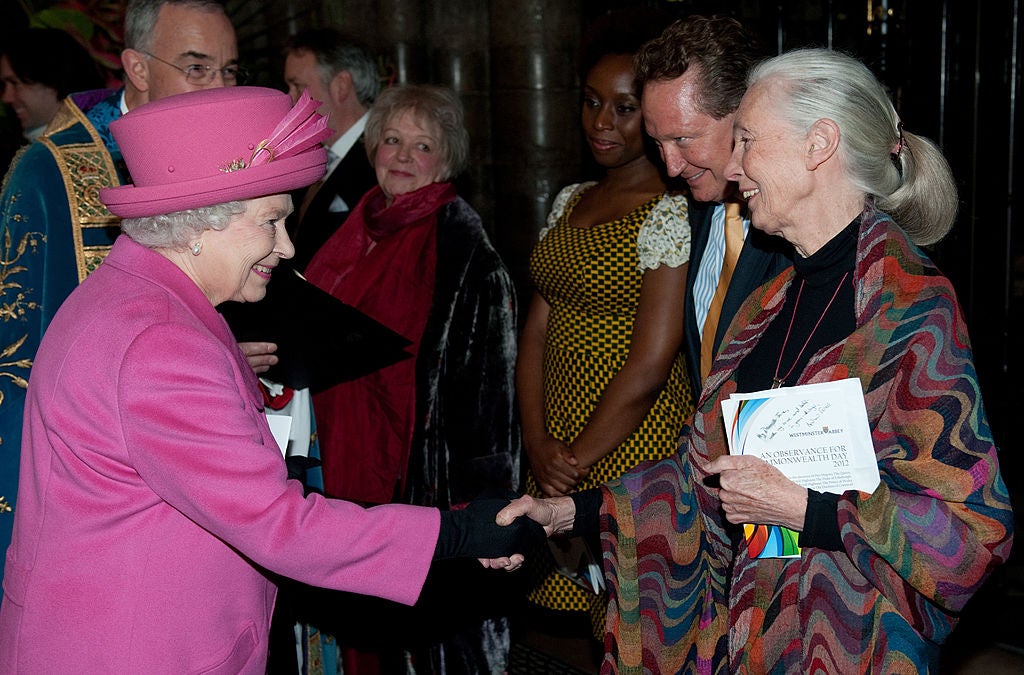The Climate 100 List: At 90, primatologist Jane Goodall is still on her lifelong crusade to protect nature
Ahead of The Independent’s Climate 100 List launch in September, we are celebrating some of the leading lights being honored for their work tackling the climate crisis and protecting nature. David Callaway shares his interview with the irrepressible Dr Jane Goodall


Turning 90 this past April didn’t slow down Dr. Jane Goodall one bit.
The renowned zoologist, primatologist and anthropologist, regarded as the foremost expert on chimpanzees in the world, still travels almost every day of the year promoting her Jane Goodall Institute and raising money to protect the environment.
Born in Hampstead, North London, Goodall stays with a sister when she returns to visit England. Otherwise, she crosses the world on tour, speaking and traveling from one hotel to another.
In an interview last year after she turned 89, Goodall said the world had squandered its opportunity during Covid to open back up to nature and protect the environment. But she is still hopeful that the younger generation, which makes up a huge part of her supporters, will change things while there is still time.

Goodall first traveled to Africa in 1957, where she stayed at the farm of a friend. She was already in love with animals of all sorts, having read Dr. Doolittle, a novel about a man who talks to the animals, as a child, and befriended a stuffed chimpanzee her parents had given her.
Her work communicating with chimpanzees established her reputation in the 1960s, and set an example for young women to become scientists by persevering in a mostly-male primatology world. She used her fame to open the Jane Goodall Institute in 1977, which supports natural research and conservation in Africa, among other things.
Goodall’s most famous observations were that chimpanzees communicated with each other in ways considered very human, including kissing, hugging, tickling, fighting, and even using primitive tools to forage for food.

Goodall thrilled a crowd at a fundraiser at the Tampa Aquarium by saying her name in chimpanzee, which took about six seconds. Asked if she thought advances in AI, such as ChatGPT, would ultimately help humanity talk with and understand the animals, just like Dr. Doolittle, she demurred.
“There are people who use AI to decode how animals communicate,” Goodall said. “I don’t think it would be sensible to try to learn to turn their communication into human words. All our non-verbal language is similar anyway. Hugging, kissing.”
Goodall admitted at the event that evening that at her age, she spends a good deal of time pondering what happens after she’s gone. It’s part of what she explores in her latest book, “The Book of Hope: A Survival Guide for Trying Times,” with Douglas Abrams. She said she believes we retain our consciousness after we die.
“I can’t think of a greater adventure than what is beyond our mortal life,” she said.
But judging from Goodall’s energy and enthusiasm at the age of 90, she will likely have several birthdays to come to pursue her passions.
The Independent will be revealing its Climate100 List in September and hosting an event in New York, which can be attended online, to reserve your place click here.
Subscribe to Independent Premium to bookmark this article
Want to bookmark your favourite articles and stories to read or reference later? Start your Independent Premium subscription today.

Join our commenting forum
Join thought-provoking conversations, follow other Independent readers and see their replies
Comments